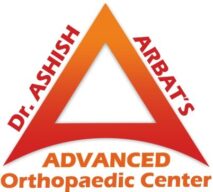
Avascular necrosis (AVN) is a disease of the bone that can cause joint pain, particularly in the hip. The damage to the bone happens from lack of blood flow to the bone cells, generally due to an injury. Risk factors for developing avascular necrosis include trauma and steroid use. AVN can at times lead to destruction of the hip joint and cause severe arthritis. Avascular necrosis in hip is also referred to as osteonecrosis or aseptic necrosis.
Avascular necrosis is a throbbing bone condition that gets terrible over time and can affect your mobility. It happens when something cuts off blood flow to one of your bones. Dr. Aashish Arbat a popular hip replacement surgeon in Pune believes in technological advancements & innovations which help cure the patients with less pain & in lesser time frame. In this blog, Dr. Arbat a well-known name in hip replacement surgery explains the symptoms, causes, treatment of avascular necrosis of hip.
For any disease understanding the symptoms or indications at the primary stage is essential. Some people have no symptoms in the initial stages of avascular necrosis. Dr. Arbat, mentions a few symptoms signs to help you get alert. Keep reading to learn more.
Contents
Avascular Necrosis of Hip Symptoms
As the condition deteriorates, affected joints might hurt only when putting weight on them. Ultimately, you might feel the pain even when you’re lying down. Pain can be mild or severe. It normally develops gradually. Pain associated with avascular necrosis of the hip might center on the groin, thigh or buttock. Besides the hip, the shoulder, knee, hand and foot can be affected as well. Some people develop avascular necrosis on both sides, such as in both hips or in both knees.
Avascular necrosis of the hip occurs when blood flow to a bone is interrupted or reduced.
Avascular Necrosis Hip Causes
The following are some of the causes of avascular necrosis:
- Joint or bone trauma, such as a dislocated joint or fractures
- Cancer treatments involving radiation
- Fatty deposits in blood vessels
- Use of certain drugs, such as Prednisolone
- Medical conditions such as antiphospholipid syndrome or protein C or S deficiency
- Excessive smoking
- Certain chemotherapy drugs
- Deep sea diving
- Illnesses such as HIV/AIDS, sickle cell anemia, renal disease, Caisson’s disease, glycogen storage disease
- Long-term steroid use
- Alcohol abuse
Dr. Arbat, a reputed Pune Orthopedic Doctor mentions the possible precautions to follow.
Prevention
- Limiting alcohol intake
- Keeping cholesterol levels low
- Monitoring steroid use
Early detection of the avascular necrosis of the hip and proper treatment, can help you regain mobility and live an active life. Open discussion with your doctor is the key. Avascular necrosis if left untreated; worsens. Eventually, the bone can collapse. Avascular necrosis also causes bone to lose its smooth shape, at times leading to severe arthritis.
Avascular Necrosis of Hip Treatment
Treatment options for avascular necrosis of the hip as explained by Dr. Arbat, a well-respected hip replacement surgeon in Pune:
- Core decompression: Surgeon removes part of the inner layer of bone.
- Bone transplant (graft): Strengthens the affected bone area.
- Bone reshaping (osteotomy): Removes a wedge of bone above or below a weight-bearing joint to shift weight off the damaged bone.
- Joint replacement: Surgical option.
- Regenerative medicine treatment: For early diagnosis, nonsurgical treatments like medications, injections, and physical therapy may slow progression.
Does Hip Replacement Cure Avascular Necrosis?
Dr. Arbat, an esteemed hip replacement doctor in Pune mentions that it is important to understand if hip replacement can cure avascular necrosis. It has been found to be a boon for patients.
Avascular Necrosis of Femoral Head Symptoms
- Intermittent pain that appears and eases when you put pressure on the bone and then remove the pressure.
- Increasing pain and stiff joints.
- Limited range of motion.
- Limping if you have avascular necrosis in your hips or knees.
- Difficulty climbing stairs, standing, or walking.
- Pain that may increase over time and becomes severe if the bone collapses.
- Pain that occurs even at rest.
- Groin pain if the hip joint is affected.
- Difficulty with overhead movement if the shoulder joint is affected.
- Worsening arthritic symptoms in the joint when the condition deteriorates.
FAQs
How long can you live with avascular necrosis?
Living with avascular Necrosis can be challenging, and can affect your quality of life by limiting your range of motion. However, with early detection and treatment you can live a possibly long and healthy life with some management techniques.
What is the best treatment for avascular necrosis?
There is no cure for avascular necrosis, but early diagnosis and treatment can slow its progression. Treatment includes taking medications to relieve pain or restricting the use of the affected area.
How is avascular necrosis of the hip diagnosed?
To diagnose avascular necrosis (AVN) of the hip, doctors will review your medical history, perform a physical exam, and order one or more tests.
Your doctor may start making a diagnosis by asking you about your symptoms, including when they began and whether they have gotten worse over time. The Orthopedic Doctor will also asses your medical history to see if you have any risk factors for AVN, like a previous hip injury, corticosteroid use, and whether you have a medical condition associated with AVN of the hip. At the time of the physical exam, your doctor will closely examine your hip and move it around to check whether certain positions cause pain. Imaging tests like X-rays and magnetic resonance imaging (MRI) scans of the hip are needed to determine a diagnosis.
Make an appointment to consult with Dr. Aashish Arbat, a well-respected Pune Orthopedic Doctor if you have Avascular necrosis in hip so that you to decide on the best course of action.
Book an appointment TODAY!

